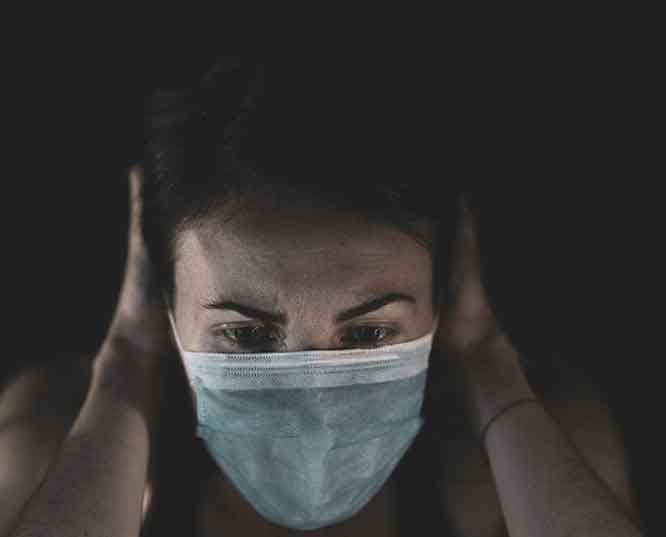
The pandemic has been a neutron bomb targeted at the prospects of lower-income working people.
They had finally begun to benefit from the recovery from the Great Recession when the virus ravaged industries that disproportionately employ them. Wars and depressions often reduce economic inequality. Not the pandemic. The Washington Post has called the resulting economic damage "the most unequal recession in modern US history."
As the paper puts it, "the less workers earned at their job, the more likely they were to lose it." The pandemic has hammered the services industry, especially restaurants, hotels and places of entertainment, all of which don't pay high wages and tend to employ women and minorities.
It has cut a swathe through small business. It has slammed workers who can't retreat to home offices to do their work via Zoom calls.
In short, it has taken all the tendencies of our knowledge economy that benefit the better-educated and disadvantage non-college-educated workers and made them more pronounced, amid a public-health crisis that has also hit the most vulnerable the hardest.
Survey data have shown that affluent people have been socially distancing more, and why not? It's easier for them.
According to a Gallup survey earlier this year, 71 percent of people in the top Âincome quintile said they were working from home, whereas 45 percent of people in the bottom quintile stayed at home and were unable to work.
A National Bureau of Economic Research working paper published last May found that workers in high-proximity jobs impossible to perform from home tend to be "less educated, of lower income, have fewer liquid assets relative to income and are more likely renters."
Workers in such jobs were more likely to become unemployed, and non-college-educated workers experienced a four-point-larger drop in employment than college-educated workers. Jobs at the top have bounced back since the spring, and affluent people might have more wealth than ever, given the increase in home values and the frothy stock market.
The story is different farther down the income scale.
According to the Washington Post analysis, Hispanic Americans experienced the sharpest loss in employment with the onset of the pandemic. The young were particularly hard hit; 20 percent of those aged 20 to 24 lost their jobs. Mothers with children aged 6 to 12, called upon to fill the gaps created by school closings, have been particularly slow to re-enter the labor market. Similarly, mom-and-pop businesses have fared poorly.
A survey by Alignable, a small-business social network, found nearly 50 percent of small businesses say they are generating less revenue than they need to stay in business, with travel businesses and gyms and beauty salons at particular risk. The pandemic has torn apart what the long recovery since the Great Recession had slowly, too slowly, built.
Since 2010, a lion's share of new jobs were created in the services industry, which has been trashed by the virus. In 2019, black employment had hit record levels. It plummeted last spring, and black men have recovered less than half of their pre-pandemic employment. Positive trends in labor-force participation have been stymied, with the labor-force participation rate the lowest it's been in about 50 years.
Mass vaccination next year should take the edge off this economic dislocation, but it's easier to destroy than create. The Federal Reserve estimates that employment won't fully bounce back until 2023.
What is to be done?
Policy makers need to realize that when they promulgate lockdown restrictions, they are usually asking the people with the least economic margin for error to sacrifice the most. Congress needs to pass a new stimulus bill, to cushion the blow of a natural disaster that has immiserated many millions of people through no fault of their own.
And the incoming Biden administration ideally would realize that fashionable causes like climate change need to take a backseat to the pursuit of full economic recovery. The economic pain isn't the worst that the pandemic has wrought, but it can't be ignored.
(COMMENT, BELOW)


 Contact The Editor
Contact The Editor
 Articles By This Author
Articles By This Author